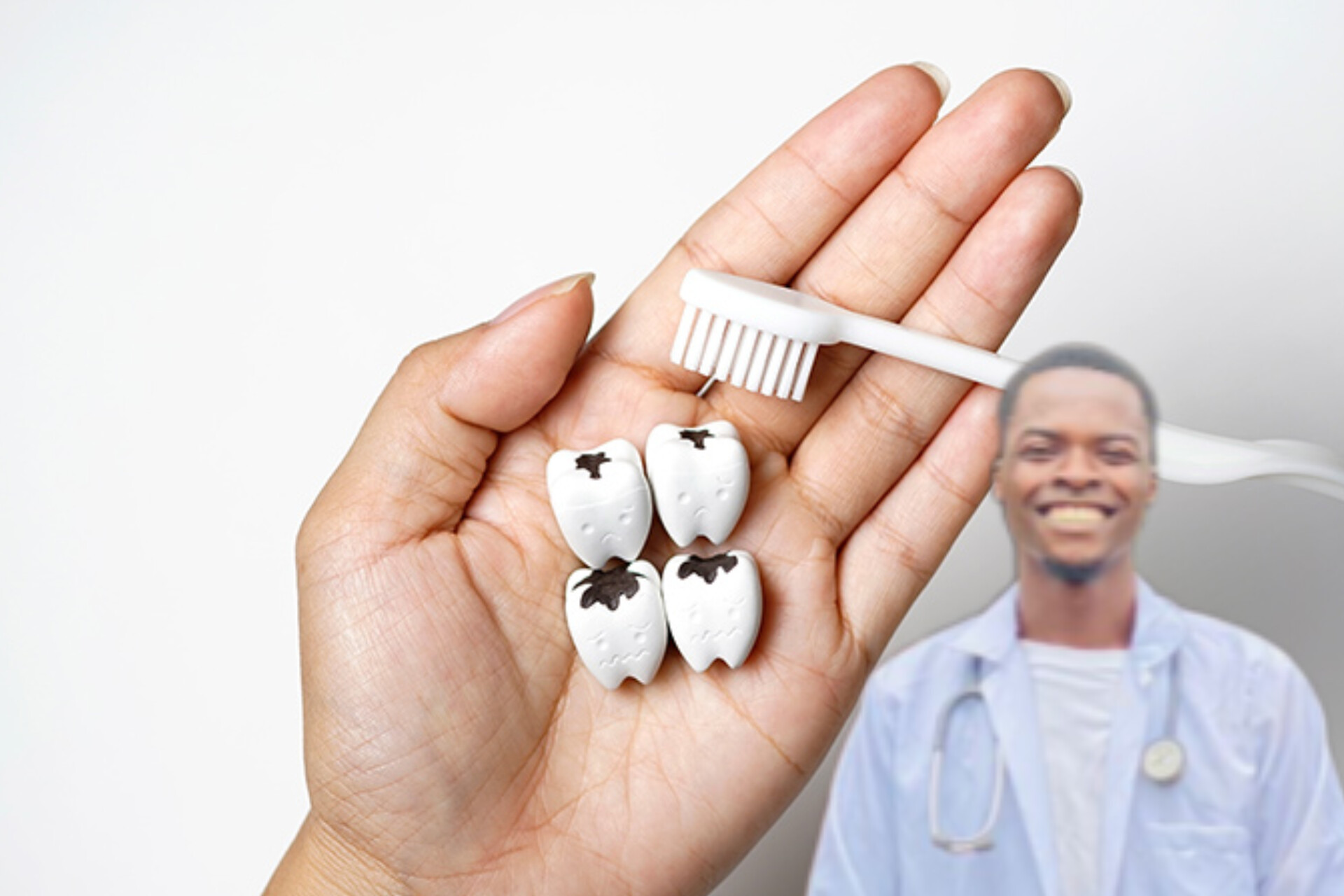- Get link
- X
- Other Apps
JUST IN
- Get link
- X
- Other Apps

What Causes Tooth Decay?
There are plenty of bacteria in the mouth, some are helpful to us, and others cause harm. These harmful bacteria are responsible for the decay of teeth. The bacteria together form a film (plaque) and participate in making acid from the food that you eat, mainly from sugars and starch. This acid formed damages the teeth, which we see as decay. As part of a natural process, our teeth keep losing and regaining minerals. If we do not care for our teeth properly, it results in the loss of more minerals than we can regain, thus leading to tooth decay
Symptoms of Tooth Decay:
There are a few signs that you should look out for if you think that you have tooth decay. The symptoms of tooth decay are:
Stains on the surface of the teeth. They may be white or brown coloured.
You might see a cavity in your tooth.
You might feel sensitivity when you eat something sweet, cold or hot.
Pain in the tooth (known as toothache)
Sometimes, you may have a fever along with swelling in the face due to infection
- Aloe Vera Gel
- Aloe vera gel has a wide range of uses. It has anti-microbial (germ-killing) and anti-inflammatory (inflammation reducing) properties due to the presence of bioactive compounds. A study has shown that aloe vera gel effectively kills and removes bacteria (S. mutans and Lactobacillus spp.), which are known for their involvement in cavity formation (dental caries).5,6 In this way, aloe vera gel might protect the tooth from decay. It can be used by making juice and drinking daily. It can also be used as a toothpaste to brush teeth daily for receiving its benefits.
- Green Tea Green tea has anti-bacterial properties; thus, it is said to lower the number of bacteria in the mouth that have the potential of causing cavities. It also contains a high amount of fluoride. Fluoride is a mineral that protects teeth from decay by helping them to regain minerals. Researchers have found that green tea prevents caries (anti-cariogenic) in animal models. It might be because of its anti-bacterial activity due to the presence of certain substances.7 Studies in humans have been inconclusive; hence, further research is needed to conclude. You can consume green tea as a beverage by using its leaves or a teabag to brew a hot cup of green tea.
- Clove Oil
- An experiment was conducted to understand the effect of clove oil on tooth decay by preventing de-calcification (loss of minerals from teeth).
- Oregano Oil
- Oregano oil is an essential oil. It has the property of destroying various micro-organisms like bacteria, fungi, etc. Therefore, its potential in killing tooth decaying bacteria was evaluated in a study. This study showed that when oregano oil was added to a toothpaste, which was already efficient in killing bacteria, its efficiency increased two-fold. Thus, it helps in the prevention of tooth decay.9 You can mix oregano oil with your regular toothpaste and use it to brush your teeth daily.
- Cinnamon Oil
- In the same study mentioned above, the activity of the oil from one of the cinnamon species, Cinnamomum cassia (Chinese cinnamon), was also studied. The bacteria destroying activity of cinnamon oil was evident. Thus, cinnamon oil might be used in the prevention of dental cavities.9 You can make use of this oil in the same way by mixing it in toothpaste and brushing your teeth daily.
When to Seek Medical Help?
You should seek help from a dentist if:
- You notice bleeding from the gums
- Your face gets swollen
- Your mouth or tooth pains
- You notice signs of infection (redness, swelling and pain)
- You find it difficult to chew

Comments
Post a Comment
Let know your comments